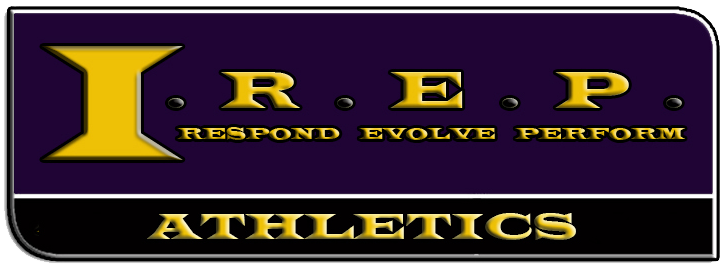 Personal trainer certifications serve as a hallmark of a fitness professional’s commitment to their craft, requiring a rigorous assessment of their knowledge and practical skills. These credentials are granted by accredited organizations, which maintain industry-wide standards for what a personal trainer should know and be able to do for their clients. Such certifications represent a depth of understanding that is crucial for any professional entrusted with an individual’s physical well-being.
Personal trainer certifications serve as a hallmark of a fitness professional’s commitment to their craft, requiring a rigorous assessment of their knowledge and practical skills. These credentials are granted by accredited organizations, which maintain industry-wide standards for what a personal trainer should know and be able to do for their clients. Such certifications represent a depth of understanding that is crucial for any professional entrusted with an individual’s physical well-being.
Renowned institutions like the American Council on Exercise (ACE), National Academy of Sports Medicine (NASM), and the International Sports Sciences Association (ISSA) are among the premier bodies that offer these coveted programs. Each organization has its emphasis and areas of specialization, but all share a common goal: to equip personal trainers with the knowledge necessary to provide safe, effective, and individualized fitness and exercise guidance.
Gaining certification from such an accredited institution typically involves an extensive review process that includes both studying key subject matter and demonstrating mastery through examinations. Prospective trainers need to immerse themselves in the crucial areas of exercise science, covering topics such as biomechanics, exercise physiology, fitness assessments, kinesiology, and nutrition. Understanding these foundational concepts allows trainers to create scientifically-backed and personalized workout plans catered to the unique physiological makeup and health goals of each client.
Program design skills are tested to ensure trainers can enhance their client’s fitness status progressively and creatively, adapting to specific needs and avoiding plateaus or overtraining. Effective client assessments are also a focal point of certification programs, ensuring trainers can evaluate an individual’s starting point accurately regarding fitness levels, health conditions, and potential limitations. Such assessments form the backbone of developing a safe and effective training plan.
Practical skills vital in day-to-day operations are emphasized. These include demonstrating proper exercise techniques, understanding how to modify exercises to match different ability levels, providing motivational coaching, and managing business-related tasks where necessary. A candidate’s ability to apply their knowledge in real-world scenarios is just as crucial as the theoretical underpinnings of their craft.
It’s important to note that multiple levels of certifications exist, with some offering the basics required to work as an entry-level trainer while others cater to experienced professionals seeking to specialize or advance their expertise. Some voluntary certifications can further help a personal trainer stand out, especially those that show expertise in niche areas such as weight management, sports performance, or rehabilitative exercise.
The Educational Foundation of Certified Trainers
The class of professionals we often turn to for guiding our fitness journey, certified personal trainers, are well-versed not merely in exercise routines, but in the intricate science that underscores human movement and health. At the heart of a certified trainer’s effectiveness is a robust educational foundation that encompasses various scientific disciplines, notably human anatomy, kinesiology, physiology, and exercise science. Such depth and breadth of knowledge are not just desirable but indispensable for creating workout plans that yield maximum benefits while prioritizing client safety.
A proficient personal trainer needs to understand how muscles, bones, tendons, and ligaments work together to bring about movement. This understanding allows them to craft exercise sequences that target the correct muscles, avoid undue strain on joints, and optimize the benefits of each movement. Injury prevention hinges on this anatomical understanding, as proper form and techniques are based on how the human body is structurally composed and functions.
Physiology is another cornerstone of a certified trainer’s knowledge base. Fitness professionals must understand how the body responds to stress, adapts to different types of exercises, and recovers. This scientific grounding enables trainers to set the correct intensity and volume of exercises while providing insight into recovery and rest time needed for various clients. Knowledge of metabolism and energy systems allows trainers to optimize workouts to achieve specific goals, it’s fat loss, muscle gain, or improved athletic performance.
Certified personal trainers can innovate and modify exercises to tailor to a client’s specific needs, compensating for any physical limitations and ensuring each workout remains effective and engaging. Exercise science provides trainers with the framework to progress a client’s workout intensity safely, ensuring consistent advancement towards their fitness goals.
Trainers apply their educational foundation to account for various client-specific variables, such as unique fitness levels, existing medical conditions, previous injuries, and personal objectives. If a client desires to improve cardiovascular health, enhance muscle strength, or achieve peak performance in a sport, a certified trainer can call upon their knowledge to devise a personalized program that suits those particular needs, accounting for factors such as age, lifestyle, and available time commitment.
A thorough educational foundatin supports the physical components of personal training and is instrumental in the psychological aspects. Understanding the interplay between mental health and physical exercise allows trainers to support clients through the often challenging process of lifestyle change, motivating them through plateaus and helping them set realistic, achievable goals.
The comprehensive educational base of a certified personal trainer is the bedrock upon which they build their practice. It’s from this foundation that they are equipped to provide not just exercises, but a holistic fitness experience that emphasizes form, function, and overall well-being. This educational prowess goes hand-in-hand with the practical skills picked up in the field, forming a full suite of aptitudes that serve to minimize health risks and maximize the rewards for clients who entrust them with their fitness aspirations.
Legal and Professional Requirements
The world of personal fitness entails more than just meeting health goals; it encompasses a bundle of legal and professional requirements that fortify the integrity of the fitness industry. Certifications aren’t just about affirming an individual’s proficiency—they also provide critical legal and professional safeguards that protect both the trainer and the client. These certifications underwrite a promise of quality and a readiness to uphold high professional standards.
Liability insurance—an asset for any reputable personal trainer. This protective measure is often a required element for certification from earnest fitness organizations. Liability insurance serves as a financial safety net, covering both the trainer and client in the unfortunate event of an accident or injury during a training session. This insurance is a sign of professionalism and indicates a commitment to ethical practice, showing that the trainer takes both their role and the well-being of their clients seriously.
But the role of certification in legal and professional protections extends beyond insurance. The process through which a personal trainer becomes certified includes education on the legal aspects of fitness training. This involves understanding client-trainer contracts, awareness of the scope of practice, and clarifications on the legal boundaries of offering nutrition or medical advice, which could otherwise lead to unauthorized practice claims.
A certified personal trainer is aware of their fiduciary responsibilities, respecting the client’s trust by adhering to privacy laws such as the Health Insurance Portability and Accountability Act (HIPAA) in the United States. This means handling all personal health information with confidentiality and discretion. Professionalism is incorporated throughout their practice, abiding by an ethical framework that empowers clients, respects their limitations, and prioritizes their safety and interests.
Certifications often require trainers to engage in regular re-certification, which includes keeping up to date with current laws, practices, and industry standards. This continuous education refreshes trainers on the technicalities of fitness science but also keeps them abreast of ethical and legal best practices.
Trainer certifications also act as a benchmark for employment within gyms and fitness centers. These facilities typically demand certification from recognized bodies before allowing trainers to work with their clientele, bearing testimony to an individual’s expertise and assuring quality service.
